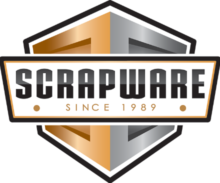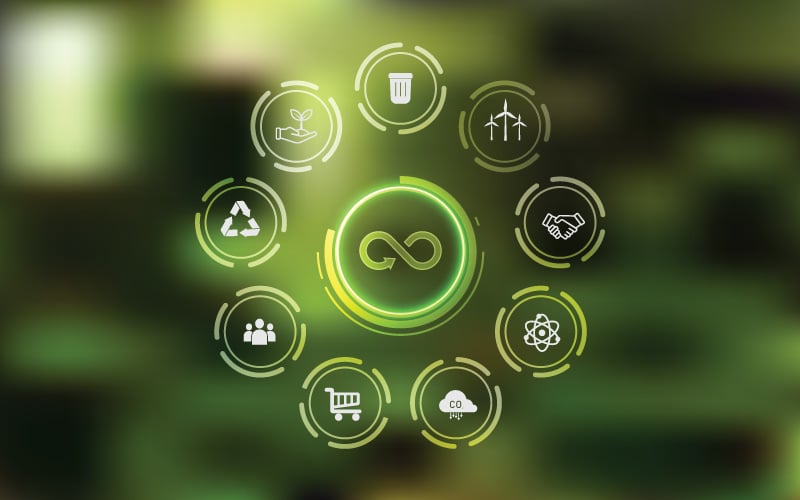The recycling industry is being joined by government agencies, business, and environmental interest groups in moving toward a circular economy, an effort to both enhance the environment and create value.
While the recycling industry has been at the forefront of efforts to save natural resources, new efforts are picking up steam with the help of technology.
A circular economy is described as a method of production and consumption which involves reusing, repairing, refurbishing, and recycling existing materials and products for as long as possible.
Or, as the Environmental Protection Agency (EPA) simply states, “A circular economy keeps materials, products and services in circulation for as long as possible,” with the goal of extending the life cycle of products. In practice, this amounts to efforts to reduce waste. When a product reaches the end of its life, its materials are kept within the economy whenever possible by way of recycling. These materials can be used again and again, creating further value.
The EPA website page on this topic details current ongoing efforts to facilitate a move to a more circular economy. Earlier this month, the agency issued a draft strategy for reducing food loss, waste, and the recycling of organics. This spring it issued a similar draft on plastics pollution, and it announced it is preparing a draft strategy focusing on electronics in the circular economy.
A Harvard Business Review article earlier this year reported on how digital tools and AI can help overcome the hurdles to moving toward a circular economy. It discussed three strategies to achieve this goal—extending the life of existing products, using fewer materials in production, and using more recycled materials in production The authors stated that technology could enhance all these strategies, that would yield promising financial returns, but would require significant investment.
The role of scrap metal recycling in the circular economy
Scrap metal recycling has long been important for both the environment and the economy. Most metals are infinitely recyclable—they can be recycled repeatedly and not lose any of their properties. That means scrap metal can be transformed over and over again into new material suitable for manufacturing and construction. Processing scrap metal, however, is significantly better for the environment then mining and refining brand new “virgin material.” Mining is considerably more expensive and disrupts natural habitats. The process of turning ore into usable material requires significantly more energy consumption than recycling. According to the Institute of Scrap Recycling Industries (ISRI) using recycled aluminum saves up to 95 percent of the energy needed to use virgin materials. For copper that amount is 85 percent and for steel there is a 74 percent energy savings. Finally, recycling scrap metal keeps it out of landfills. Not only does scrap metal recycling create environmental benefits, it also reaps economic benefits because the recycled materials are significantly less costly for manufacturers to use.
According to ISRI, recycling can be divided into three categories—residential, commercial and industrial.
Residential recycling comes from households and commercial scrap is generally generated by retail establishments. What most people don’t understand is that industrial recycling accounts for a significant volume of the scrap generated today. In fact, residential recycling provides only about one third of the entire US supply of recycled material. According to the Bureau of International Recycling, about 40 percent of steel production today is made from scrap metal into recycled steel.
When consumers think of recycled metal, they usually only identify it in retail products. Aluminum, for instance, is normally associated with beverage cans. But this light metal is also widely used in home construction as a component in windows, siding, and gutters. When a building is torn down, recycling this aluminum directly impacts consumers with lower priced cans. In fact, aluminum is known for its quick turnaround time–going from scrap yard to grocery store shelf in as little as 60 days!
The metal recycling industry helps facilitate industrial scrap recycling in many cases by handling the hauling, storage, and transportation of scrap at a manufacturing, demolition, or construction site.
Recycling companies will place containers at a site where scrap metal can be disposed of. The recyclers buying the scrap metal will transport it to the recycling facility and replace it with another empty container. In some instances, large amounts of industrial scrap are put out for bid, with the recycling company placing the highest bid taking possession of the material.
ScrapWare Corp., of Rockville, MD, supplies and supports software for the scrap metal recycling industry. ScrapWare users purchase industrial scrap from a variety of different sources–from bottling plants, sporting goods manufacturers, automotive and aerospace manufactures and from factory tear outs and building and bridge demolition projects. Electrical cable and cell tower cable provide another big source of industrial scrap. ScrapWare’s customers also process significant amounts of industrial borings and turnings that are copper, aluminum and brass. Borings and turnings are biproducts in manufacturing when metal is milled, drilled or otherwise shaped.
The ability to recycle a variety of this metal scrap quickly and efficiently has evolved with better technology, and scrap metal industry trends include utilizing an increasing amount of this technology. Separating and purifying different metals in the waste stream, especially in electronic waste, will continue to improve with advances in different metal sensing processes, for instance. The increasing demand for recycled metal will continue to push these technological advances, moving us closer to a circular economy.
About ScrapWare Corporation: Since 1989, Rockville, Maryland-based ScrapWare Corporation has been the software of choice for the recycling industry. Its ease of installation and simplicity saves users time and money while helping them achieve compliance and maintain accurate business insights. With state-of-the-art functionality that‘s tailored to each organization’s unique requirements, ScrapWare is an advanced dynamic software solution that alleviates the most pressing recycling industry worries. For more information, please call (301) 517-8500 or visit https://www.scrapware.com/.

